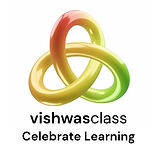
Unlock Your Academic Potential
Education should inspire, not intimidate. At vishwasclass, we believe that true learning happens when students are genuinely motivated to discover knowledge, not when they're forced into it. We create an environment where curiosity drives understanding, where problems become opportunities, and where every student develops their own unique approach to mastering mathematics, competitive exams, and programming.
Our philosophy is simple yet profound: instead of just teaching you the answers, we inspire you to discover your own methods of finding solutions. This approach ensures that knowledge becomes a part of who you are, not just what you've memorized. When you learn to welcome challenges and develop your own problem-solving strategies, you build skills that last a lifetime.
Located in Rajarajeshwari Nagar, Bengaluru, vishwasclass offers personalized guidance where both student and teacher grow together in the journey of learning. We don't just transfer information—we kindle the flame of curiosity that lights your path to academic excellence.
We believe in making mathematics meaningful and accessible.
Our expert tutors guide students through challenging mathematical concepts, fostering a deep understanding and proficiency in problem-solving.
We believe in making science and math subjects clear, engaging, and future-ready.
Our expert tutors guide students through Physics, Chemistry, Mathematics, Biology, and Computer Science—building strong foundations, critical thinking, and problem-solving skills that last a lifetime.



Preparing for competitive exams can be daunting, but with VishwasClass, students receive comprehensive preparation and valuable strategies to excel in their exams. Our mentors provide personalized guidance and resources to help students succeed.

Our curriculum is designed to equip students with essential coding skills and computational thinking. Through engaging projects and real-world applications, students gain a strong foundation in programming languages and problem-solving.

